Wheeler Mission Producing Pallets to Change Lives
By Chase Warner, Wood-Mizer

On the surface, Wheeler Mission Pallet and Industry operates as a typical pallet business by providing clients with standard and custom-sized pallets for shipment of goods. However, the organization exists primarily to restore men to health and wholeness through Christ-centered programs. “The business model that we have here, you’ll not find in any other pallet plant,” said Tom Porterfield, Wheeler Mission Pallet General Manager.
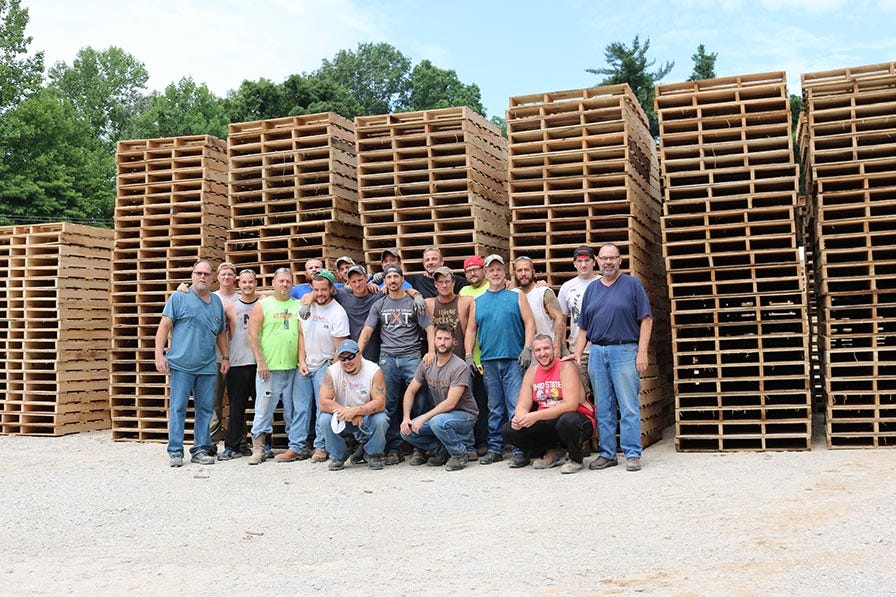

As part of Wheeler Mission Ministries, a men’s and women’s homeless shelter ministry since 1893, Wheeler Pallet is located on a residential recovery center called Camp Hunt just 50 miles southwest of Indianapolis, Indiana. Situated on 285 acres bordering a scenic and sprawling state forest, Camp Hunt is dedicated to the rehabilitation of men addicted to alcohol and drugs. "Our goal is to see men develop a life changing relationship with Christ," said Dwayne Gordon, Bloomington Area Director for Wheeler Mission Ministries.
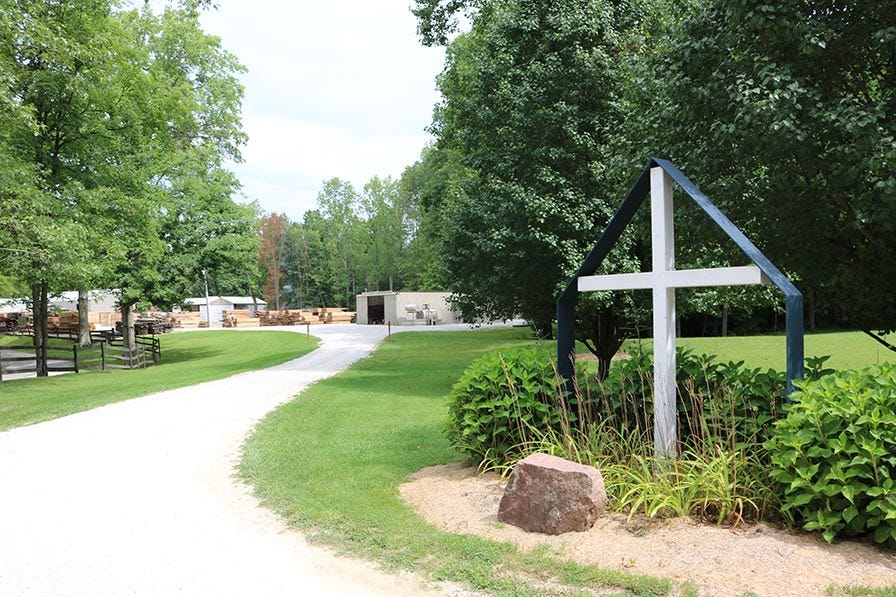

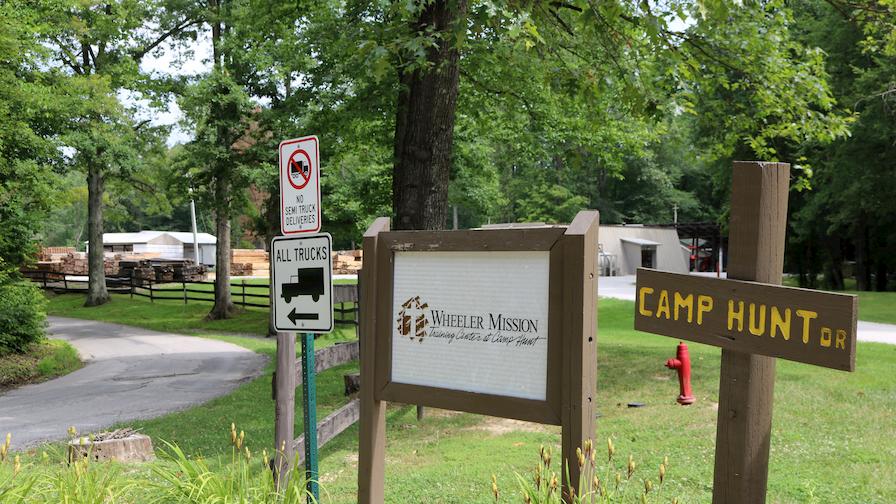

The Camp Hunt campus includes a dormitory with nearly 40 beds for men in the program, cabins and homes for the staff to reside, chapel for prayer and worship, playground areas for visiting families to reconnect, cafeteria, nature trails for hiking, and a private lake for fishing and swimming. Although the camp offers many recreational activities to encourage a healthy lifestyle, the adult students all have defined jobs at the camp and spend each day developing a positive work ethic while learning essential life skills. All of the work done by the recovering students is designed to aid in establishing self-worth and respect while being part of a vibrant community. “Wheeler isn’t just concerned with getting these individuals free of their addictions, we are committed to these men becoming viable contributors to life,” said Porterfield. As part of the 6-month program, men develop personal and professional skills such as being on time to work, attending chapel, and taking part in fellowship with others in the community.
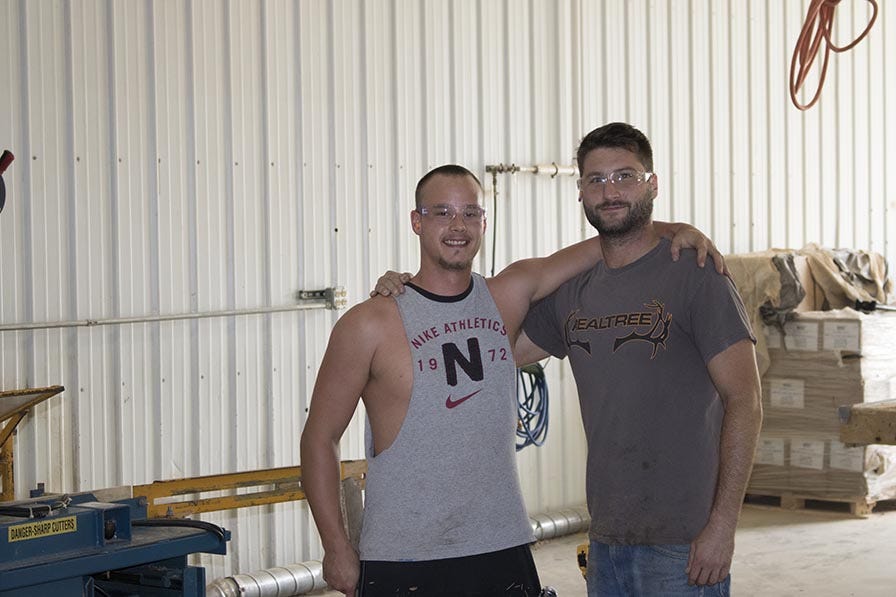

All men of the program live on campus and invest a lot of labor into the camp such as maintaining the park like grounds, buildings, and lakefront. With only a limited number of maintenance jobs available, the full-fledged pallet operation Wheeler Pallet was established to give students of the program more opportunities to learn valuable work skills. Operating with approximately 20 workers at any given time, Wheeler Pallet produces and sells high-quality hardwood spec pallets, custom pallets, and cut stock which offset the cost of running the program. After the adult students finish their morning duties at the camp, they walk to the nearby pallet plant to work from 10:30 a.m. to 6:00 p.m. every weekday. Workers are stationed in different areas of the operation including the cut-off saw, multi-head resaw, material handling, stringer notcher, groover, and assembly. A challenge facing the operation is a high turnover rate due to the 6-month timeframe of the program. “Just when they are getting proficient at what they do, we help them find another place of employment,” said Porterfield. “It’s a backward business model from any other pallet plant or any other business you’ll be around.” Even with a high turnover rate and constant training, the operation remains productive.
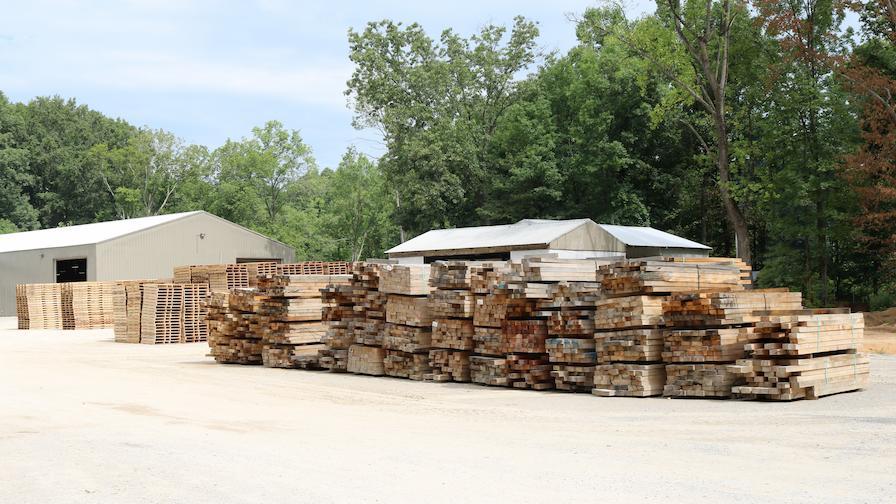

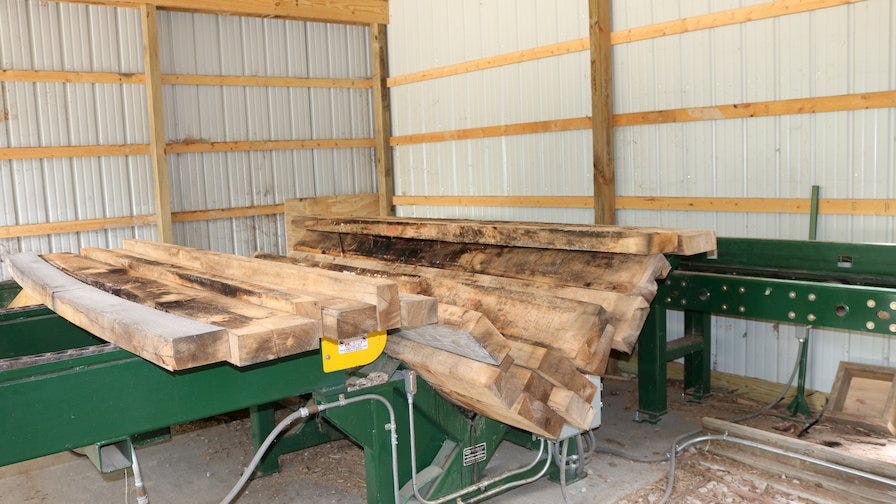

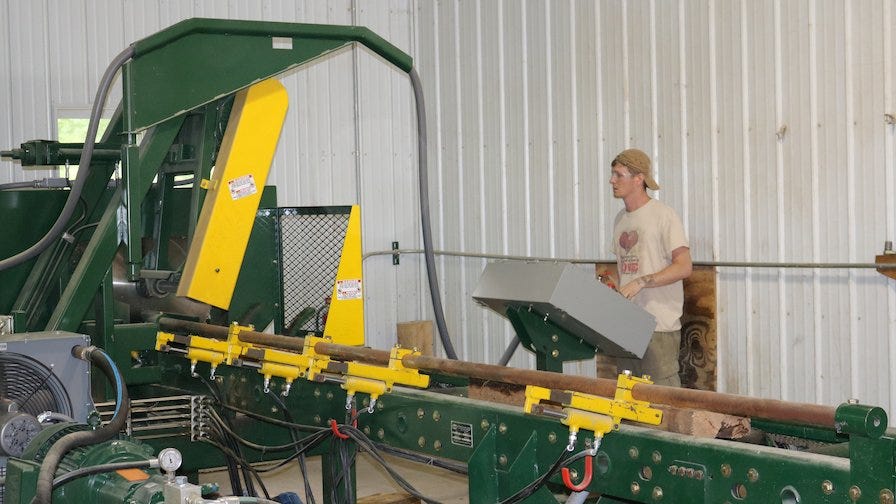

First, cants are loaded, automatically sorted, and then cut to length on a newly installed cut-off saw line. Next, the cants travel on a conveyor and are fed directly into a Wood-Mizer four-head industrial resaw with a merry go-round system to produce stringers and deck boards. The multi-head resaw has been a centerpiece of the operation since the start and has processed millions of board feet of pallet components for the business over the years. Stringers and deck boards produced from the resaw are sorted and sent to a notcher or groover before assembly. Depending on the size of pallet, the components are taken to one of four assembly stations where they are fastened by pneumatic nailers.
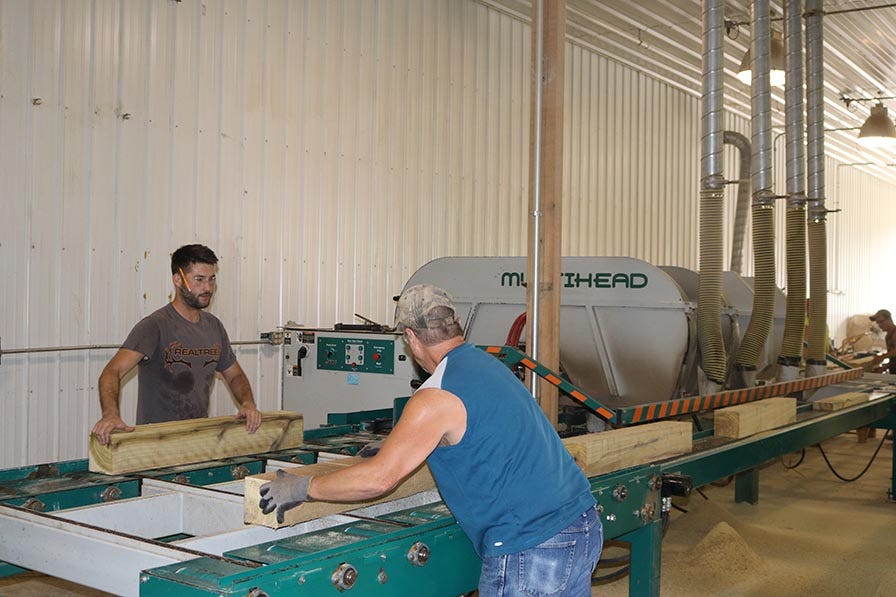

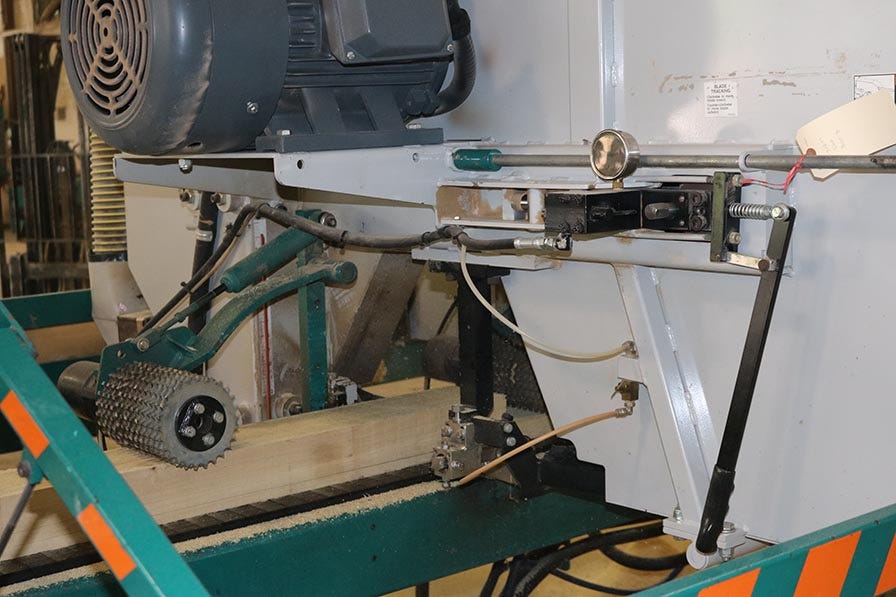

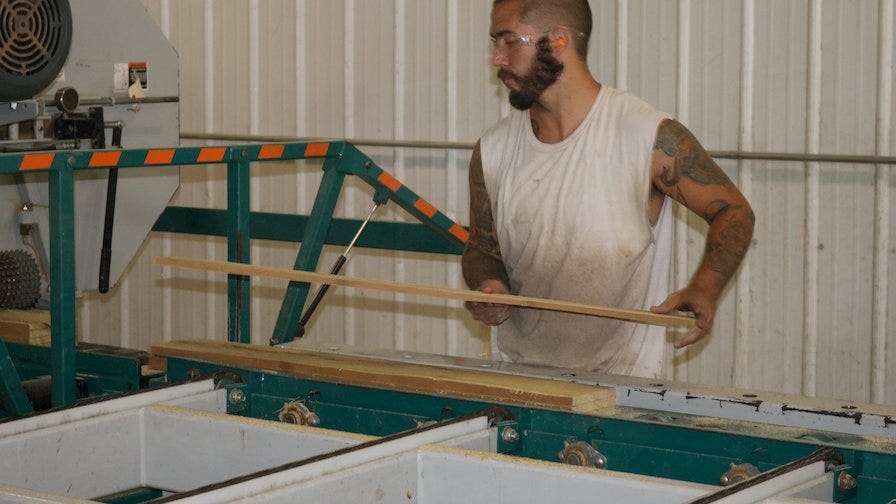

Running the operation this way for the past several years has resulted in the assembly of 14,000 board feet of material per day on average. “We build a lot of low-volume, large custom pallets so some days it is not unusual to build six to nine different pallet footprints,” said Porterfield. Although Wheeler Pallet produces standard 48” x 40” or 48” x 45” pallets, they have found a niche in producing large custom pallets for clients. “The bulk of our business is pallets with stringers 124 or 148 inches long,” said Porterfield. “We have one pallet called the ‘behemoth’ that is 251 inches long by 112 inches wide. We may average 400 pallets per day, but if they were all spec, it would be more like 1,200 pallets.”
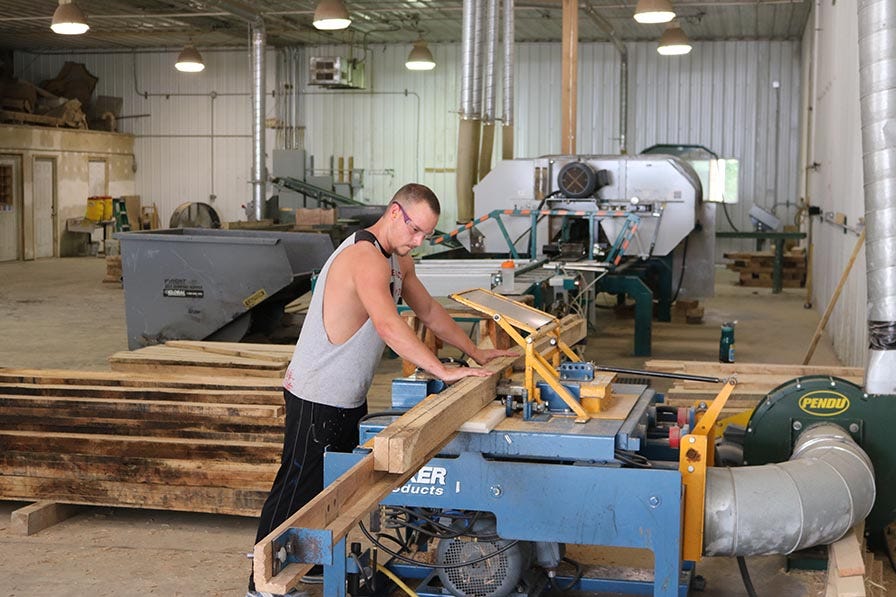

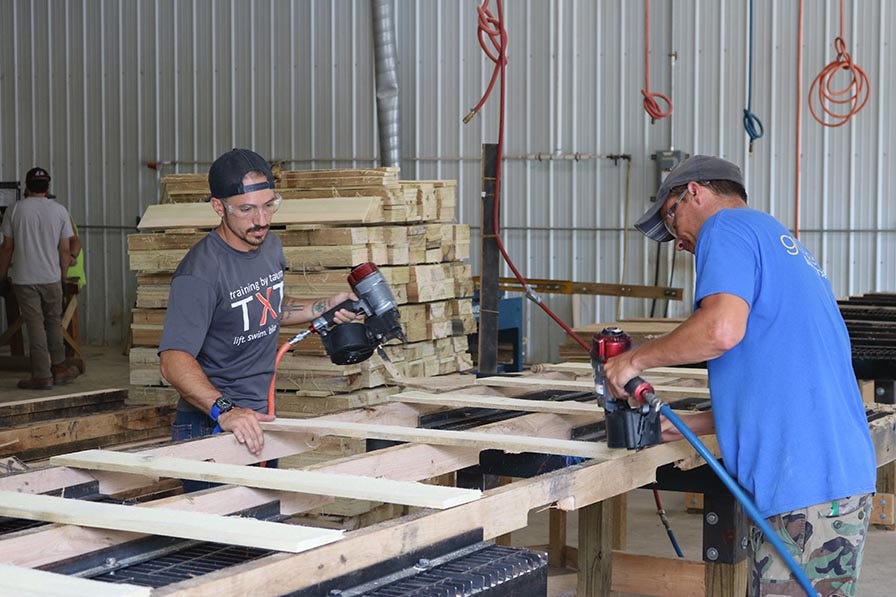

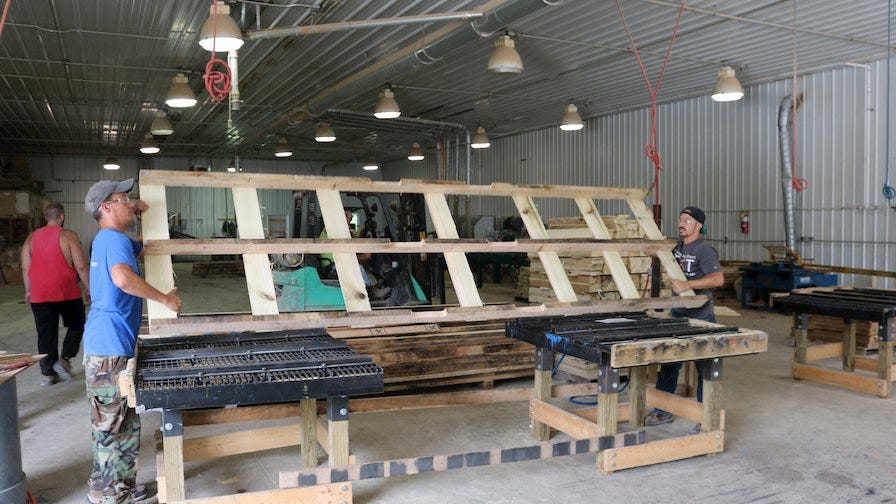

Improvements such as the cut-off saw line has provided benefits not only to production but also to workforce development. “Before the cut-up line, we were doing everything by hand,” said Porterfield. “Lifting cants onto a conveyor, positioning them on a pop-up saw, cutting them to length and stacking them.” According to Production Manager Jerry Doss, the addition of the cut-off saw line has reduced the labor needs for this stage of the operation from four people to one which enables the three other workers to learn another part of the manufacturing process and build their skillset.
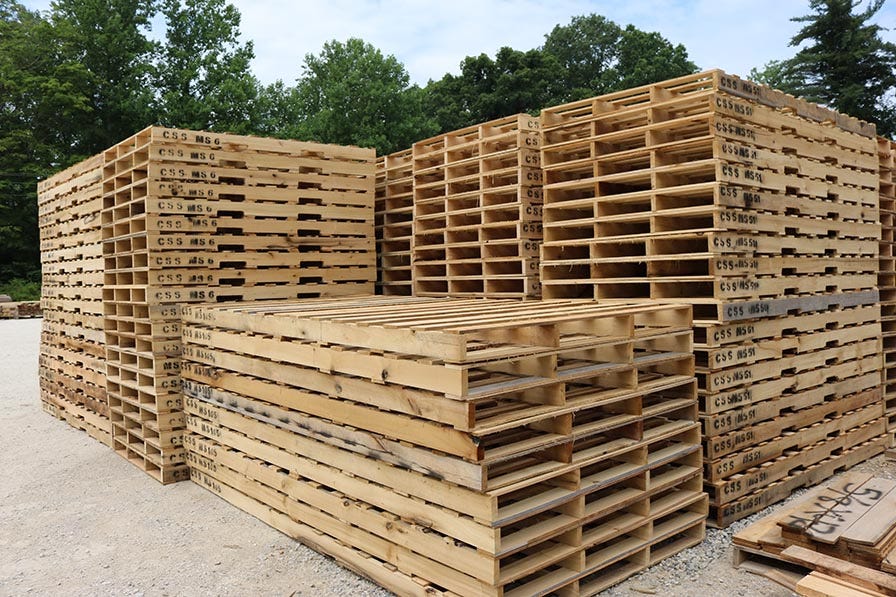

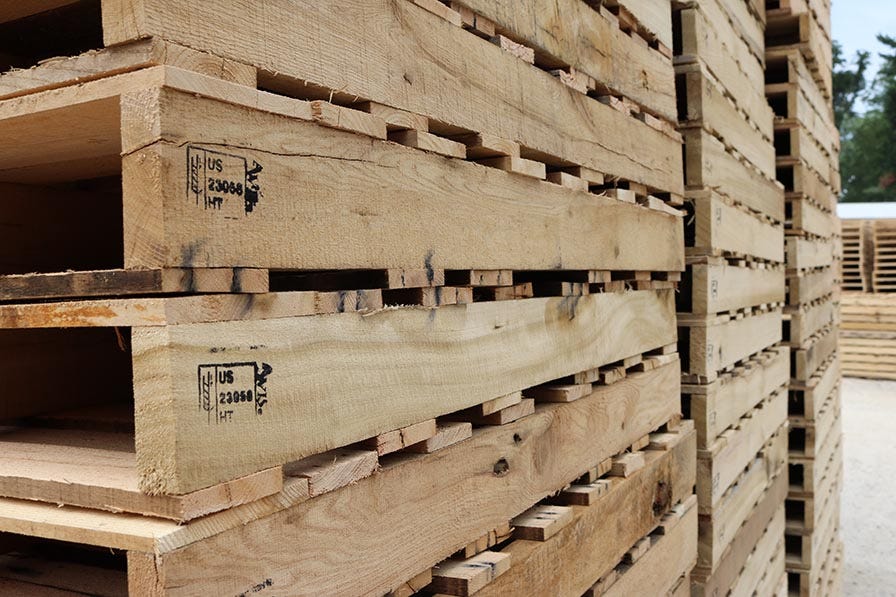

Wheeler Pallet also has found value by providing heat-treated pallets, which is becoming more in demand due to the growing needs of clients to ship internationally. According to Doss, almost half of their pallets are heat-treated in their own kiln. “Several years ago, we had to ship the pallets off-site to be kiln-dried,” said Doss. “We realized we could get our return on investment in less than two years by building our own kiln and doing it all here.” The dry kiln is heated by a wood burning stove that resourcefully utilizes extra pieces from the cut-off saw. Pallets are kiln-dried for a minimum of 40 minutes to ensure they are HT certified. Off-cuts from the operation are also used around the camp to heat the dormitories and cabins where the adult students and staff reside.
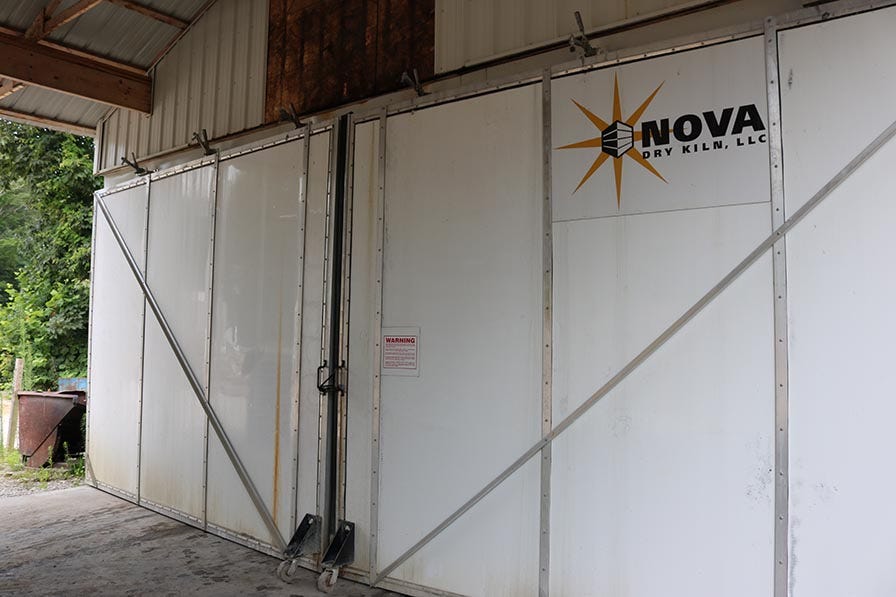

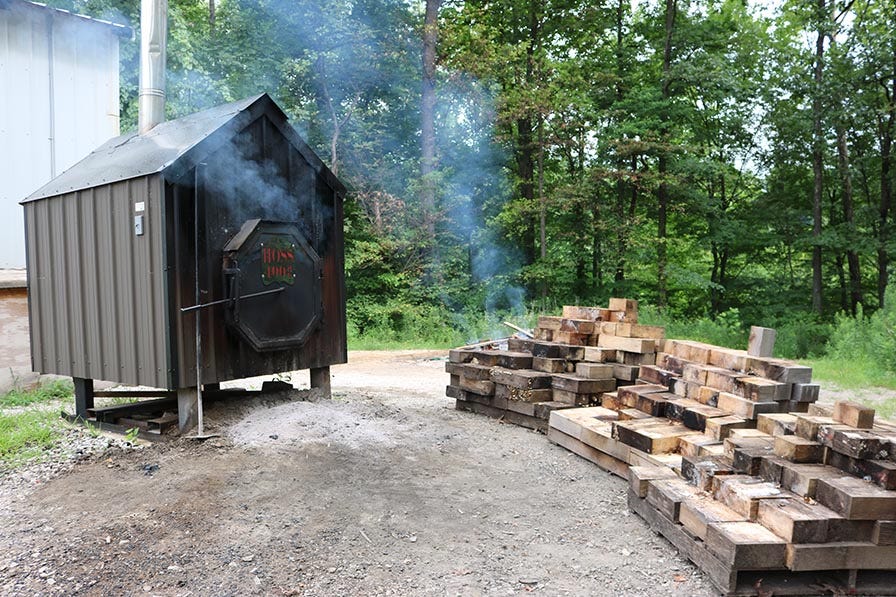

Since the beginning of Wheeler Mission Pallets, nearly 400 men have completed the program at Camp Hunt and many graduates have since become involved with the camp. Today, out of the 15 full-time staff at Camp Hunt, 12 of them have been graduates of the program. “They understand where these men are coming from, what they are fighting, and the challenges that are ahead of them,” said Porterfield. “The love, compassion, and commitment from them is amazing.” By utilizing a workforce that some have written off, Wheeler Mission Pallets is continuing to make a difference, one pallet and one life at a time.
On the surface, Wheeler Mission Pallet and Industry operates as a typical pallet business by providing clients with standard and custom-sized pallets for shipment of goods. However, the organization exists primarily to restore men to health and wholeness through Christ-centered programs. “The business model that we have here, you’ll not find in any other pallet plant,” said Tom Porterfield, Wheeler Mission Pallet General Manager.

As part of Wheeler Mission Ministries, a men’s and women’s homeless shelter ministry since 1893, Wheeler Pallet is located on a residential recovery center called Camp Hunt just 50 miles southwest of Indianapolis, Indiana. Situated on 285 acres bordering a scenic and sprawling state forest, Camp Hunt is dedicated to the rehabilitation of men addicted to alcohol and drugs. "Our goal is to see men develop a life changing relationship with Christ," said Dwayne Gordon, Bloomington Area Director for Wheeler Mission Ministries.

The Camp Hunt campus includes a dormitory with nearly 40 beds for men in the program, cabins and homes for the staff to reside, chapel for prayer and worship, playground areas for visiting families to reconnect, cafeteria, nature trails for hiking, and a private lake for fishing and swimming. Although the camp offers many recreational activities to encourage a healthy lifestyle, the adult students all have defined jobs at the camp and spend each day developing a positive work ethic while learning essential life skills. All of the work done by the recovering students is designed to aid in establishing self-worth and respect while being part of a vibrant community. “Wheeler isn’t just concerned with getting these individuals free of their addictions, we are committed to these men becoming viable contributors to life,” said Porterfield. As part of the 6-month program, men develop personal and professional skills such as being on time to work, attending chapel, and taking part in fellowship with others in the community.

All men of the program live on campus and invest a lot of labor into the camp such as maintaining the park like grounds, buildings, and lakefront. With only a limited number of maintenance jobs available, the full-fledged pallet operation Wheeler Pallet was established to give students of the program more opportunities to learn valuable work skills. Operating with approximately 20 workers at any given time, Wheeler Pallet produces and sells high-quality hardwood spec pallets, custom pallets, and cut stock which offset the cost of running the program. After the adult students finish their morning duties at the camp, they walk to the nearby pallet plant to work from 10:30 a.m. to 6:00 p.m. every weekday. Workers are stationed in different areas of the operation including the cut-off saw, multi-head resaw, material handling, stringer notcher, groover, and assembly. A challenge facing the operation is a high turnover rate due to the 6-month timeframe of the program. “Just when they are getting proficient at what they do, we help them find another place of employment,” said Porterfield. “It’s a backward business model from any other pallet plant or any other business you’ll be around.” Even with a high turnover rate and constant training, the operation remains productive.
First, cants are loaded, automatically sorted, and then cut to length on a newly installed cut-off saw line. Next, the cants travel on a conveyor and are fed directly into a Wood-Mizer four-head industrial resaw with a merry go-round system to produce stringers and deck boards. The multi-head resaw has been a centerpiece of the operation since the start and has processed millions of board feet of pallet components for the business over the years. Stringers and deck boards produced from the resaw are sorted and sent to a notcher or groover before assembly. Depending on the size of pallet, the components are taken to one of four assembly stations where they are fastened by pneumatic nailers.


Running the operation this way for the past several years has resulted in the assembly of 14,000 board feet of material per day on average. “We build a lot of low-volume, large custom pallets so some days it is not unusual to build six to nine different pallet footprints,” said Porterfield. Although Wheeler Pallet produces standard 48” x 40” or 48” x 45” pallets, they have found a niche in producing large custom pallets for clients. “The bulk of our business is pallets with stringers 124 or 148 inches long,” said Porterfield. “We have one pallet called the ‘behemoth’ that is 251 inches long by 112 inches wide. We may average 400 pallets per day, but if they were all spec, it would be more like 1,200 pallets.”


Improvements such as the cut-off saw line has provided benefits not only to production but also to workforce development. “Before the cut-up line, we were doing everything by hand,” said Porterfield. “Lifting cants onto a conveyor, positioning them on a pop-up saw, cutting them to length and stacking them.” According to Production Manager Jerry Doss, the addition of the cut-off saw line has reduced the labor needs for this stage of the operation from four people to one which enables the three other workers to learn another part of the manufacturing process and build their skillset.


Wheeler Pallet also has found value by providing heat-treated pallets, which is becoming more in demand due to the growing needs of clients to ship internationally. According to Doss, almost half of their pallets are heat-treated in their own kiln. “Several years ago, we had to ship the pallets off-site to be kiln-dried,” said Doss. “We realized we could get our return on investment in less than two years by building our own kiln and doing it all here.” The dry kiln is heated by a wood burning stove that resourcefully utilizes extra pieces from the cut-off saw. Pallets are kiln-dried for a minimum of 40 minutes to ensure they are HT certified. Off-cuts from the operation are also used around the camp to heat the dormitories and cabins where the adult students and staff reside.


Since the beginning of Wheeler Mission Pallets, nearly 400 men have completed the program at Camp Hunt and many graduates have since become involved with the camp. Today, out of the 15 full-time staff at Camp Hunt, 12 of them have been graduates of the program. “They understand where these men are coming from, what they are fighting, and the challenges that are ahead of them,” said Porterfield. “The love, compassion, and commitment from them is amazing.” By utilizing a workforce that some have written off, Wheeler Mission Pallets is continuing to make a difference, one pallet and one life at a time.







